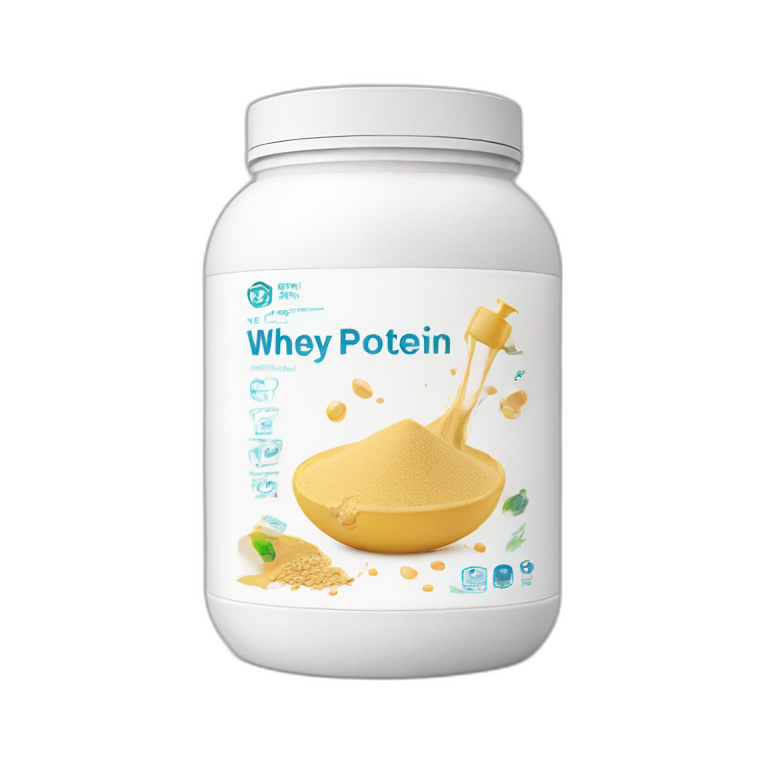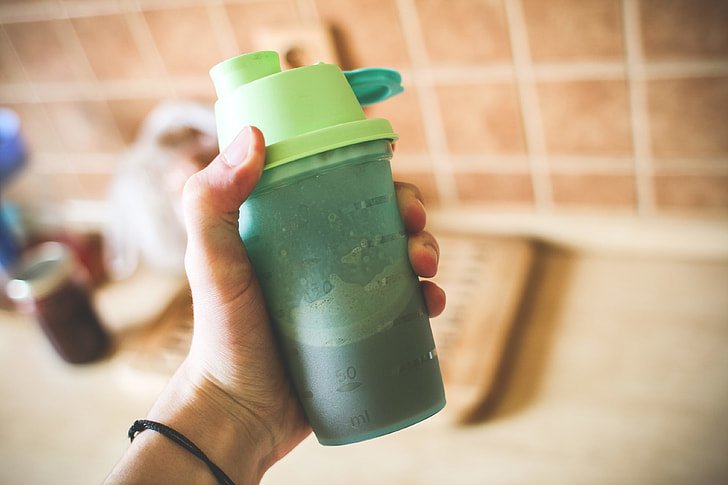Table of Contents
ToggleWhat is Protein Powder?
Protein powder is one of the most commonly used supplements today. Many use it to increase their protein intake since it cannot be obtained adequately from food alone. Athletes, gym-goers, or even those wanting to build muscles can get great help with protein powder. It’s also for people trying to lose weight or maintain good health.
People like protein powder because it is so easy. This mix will go really fast into shakes, smoothies, or even baked goods. This way, one can have their protein without needing to cook up a full meal. Protein powder is also loaded with nutrients that help support muscle growth and recovery. So, if you have busy days and want extra protein, then it could be a good choice.
Who uses protein powder? People of any age use it, including young adults and seniors. It’s great for those who work out because proteins help muscles repair after workout. The vegan and vegetarian person might even use it, since a few protein powders can be made of plants.
Types of Protein Powder
Protein powder is like any other protein. This powder has its variations and categories that are used to give specific benefits. Some of the most common are listed below.
Whey Protein
Whey is one of the most popular proteins. This is from milk and is easy to digest. It contains most essential amino acids, which are considered as building blocks in the muscles. What is behind whey protein’s popularity, especially among bodybuilders, is that it helps with fast recovery after a workout. It is excellent for muscle growth and can also increase the power level.
Casein Protein
The casein protein is also from milk. However, it works differently as compared to whey. Since casein is digested slowly, it gradually feeds the body with a steady amount of protein. Perfect for taking before sleeping, it keeps feeding your muscles through the night. A good choice if you want your protein intake to last longer.
Plant-Based Protein
Plant-based protein powder is derived from plants like peas, rice, or hemp. This is the best substitute for vegans or those who do not take dairy. Plant protein can be a bit harder to digest than whey, but it is full of fiber and other nutrients. For example, pea protein has a lot of iron in it. If you need a dairy-free option, plant protein is a good choice.
Egg White Protein
This is an egg-white-derived protein. It is high in protein but lower in calories and carbs. It digests quickly, so it is great for post-workout use. It’s also a good choice if you have dairy allergies but still do not want a plant-based product.
Collagen Protein
Collagen protein is unique. It is more used for skin, joint, and bone health rather than muscle growth. Collagen is a protein found in the skin, bones, and muscles, so adding it to your diet can help keep these areas strong.
https://www.medicalnewstoday.com/articles/323093
Benefits of Protein Powder
Protein powder offers many benefits, especially if you need extra protein in your diet. Here are some of the main benefits:
Helps Build Muscle
Protein is required to build and repair muscles. When you work out, your muscles are broken down, and you need protein to recover. It gives your body the protein it needs to rebuild stronger muscles. This is why athletes and bodybuilders use it often.
Helps in Weight Loss
It can leave you feeling full for a longer time. That means you will not be inclined to snack as often throughout the day. To lose weight, adding protein powder to your diet will surely satiate you. Some studies suggest that even more calories are burned by consuming a diet rich in protein.
Helps Recover After Exercises
Muscle strength also drops after exercise as they get tired and require repair. Protein powder aids the body to quicken its recovery process since it gives the body fast-available nutrients. The best example is whey protein, since it really is very effective in aiding recovery after exercising due to its rapid digesting time.
Boost Overall Health
Apart from muscles, proteins are needed for the skin, hair, and even bones. Protein powder, especially the collagen types, can be useful in keeping the skin and joints healthy. Most people take it to improve their immune system since it contains amino acids that keep the body strong.
How to Choose the Right Protein Powder
With so many kinds of protein powder, it’s easy to get confused about which one to pick. Here are a few guidelines to help you select the right one:
Understand Your Dietary Requirement
If you’re lactose intolerant, then whey or casein isn’t a good idea. Vegans prefer plant-based proteins from peas, rice, or hemp. Consider your allergies and preferences before you make your decision.
Match With Goals
Different proteins work for different purposes. If you want to recover muscles quickly, try whey. If you want to release protein slowly, then casein is the best option. Collagen is great for skin and joints, while egg white protein is a low-fat option. Select a protein that matches what you want to achieve.
Check the Ingredient List
Quality matters! Choose protein powders that have fewer additives. Some brands add sugars or fake flavoring; that is not always the best idea. Simple is generally better. In addition, be watchful for certifications if you want organic or non-GMO options.
Consider Taste and Texture
Taste is going to make a big difference, especially if you are using the product daily. Some are quite smooth and others will leave a slight grit feeling on your tongue. That’s okay; you may need to try several brands until you find one you like.
How to Use Protein Powder
There are a wide variety of ways that protein powder can be added to your diet. These are some easy ways:
Make a Protein Shake
Most of the protein powder is taken through a shake. You can combine it with water, milk, or a milk substitute. You can add fruits, vegetables, or nut butter to make it more fun in terms of taste and texture.
Use in Smoothies
Smoothies accept protein powder very well. You can add a scoop to your favorite smoothie recipe for an added protein boost. This is an efficient way to make smoothies more filling.
Mix into Food
Protein powder could be added to yogurt, oatmeal, or even pancake batter for an easy way of acquiring more protein in your meal or snack without greatly modifying the taste.
Always be aware of the portion
Although protein powder is useful, you don’t require a lot. Typically, you need only one to two scoops a day. Always refer to the label to find out how much the serving size is, and follow that guideline in order to avoid adverse effects.
Possible Disadvantages of Protein Powder
Despite the benefits of protein powder for most, there are possible drawbacks. Some of them are as follows:
Digestive Problems
Some people experience bloating, gas, or stomach discomfort from the consumption of protein powder, particularly if the protein is whey or casein. Take a reduced serving size, or switch to plant-based protein if that occurs. A lower additive-content powder may also help to reduce these stomach complaints.
Allergic and Sensitivity Issues
Some protein powders will contain allergens like casein and whey-based dairy or soy-based varieties of plant-based powders. If you suffer from food allergies, be sure to check the labels. There is often a hypoallergenic or allergen-friendly version of the most popular products for sensitive diets.
Added Sugars and Sweeteners
Some protein powders contain added sugars or artificial sweeteners that add calories or impact your health. Go with unsweetened or naturally sweetened powders. Simple, clean ingredients often work best.
Potential Overuse
While protein is a necessity, too much from the supplement is not necessary. Some people can develop stressed kidneys from too much protein powder. So, balance your protein with whole foods and stick to the recommended servings.
FAQs About Protein Powder
Q: How much protein powder should I take daily?
A: Most people get enough from one scoop a day, although if you exercise very heavily, you might want a little more. However, always check with a health professional regarding proper dosing. The amount of protein you need can be influenced by your body weight and fitness goals.
Q: Is it safe for children and older adults?
A: Generally, yes, but again only with the right kind and in small amounts. Protein intake is usually met adequately from foods for children and most elderly individuals. Any special additional protein should be addressed through consultation with a doctor or dietitian.
Q: May I use it with a low-calorie diet?
A: Definitely! Protein powder is virtually calorie-free if it is not full of added sugars. This way, it can provide your body with a significant dose of protein without loading on too many additional calories. Remember to always use it as a supplement rather than trying to make it your only meal if not told so by an expert.
Q: Will protein powder take the place of whole foods?
A: No, you do not have to replace all whole foods with protein powder. Whole foods contain fiber, vitamins, and many other nutrients that protein powder lacks. Use it to supplement your diet, but stick with a well-rounded mix of foods.
Q: Is the protein powder vegan-friendly?
A: Yes! Most of the plant-based protein powders are made from peas, rice, or hemp; they are vegan-friendly. Double-check the labels if you happen to be vegan!.
Q: Can I mix different types of protein powder?
Yes, many people combine types like whey and casein or blend plant-based proteins to get a mix of fast- and slow-digesting proteins. Mixing types can help cover your nutritional needs throughout the day.
Conclusion
Protein powder is an easy and flexible way of increasing the amount of protein to build more muscle, for weight control management, or just being healthy in general. There are just so many options to select from, whether it’s whey, casein, plant-based, or collagen, making it easy to find a product that’s right for you.
The right one for you would depend on your needs and preferences. Take into consideration your dietary restrictions, health goals, and the list of ingredients to find a good match. Remember that although protein powder may be helpful, it is best taken as a supplement to a balanced diet rich in whole foods.
It is quite simple to use protein powder—it goes into shakes, smoothies, or even recipes like oatmeal and pancakes. Do not overdo it and take the right amount. With these tips in mind, you are ready to make protein powder a part of your daily routine and support your health and wellness goals.





